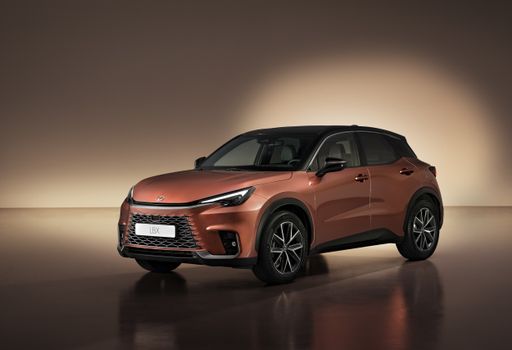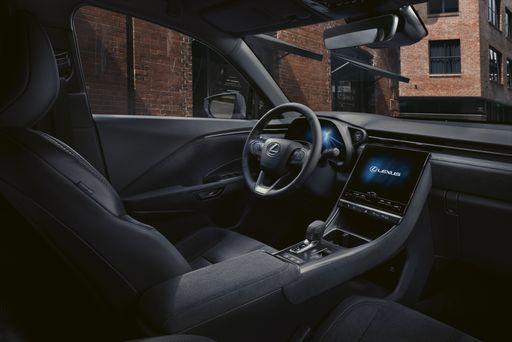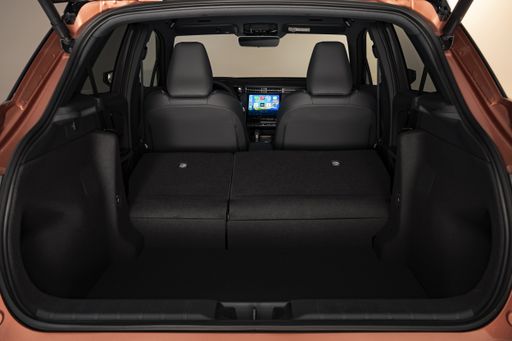Lexus LBX vs Toyota Yaris – erot ja hinnat vertailussa
Kustannukset ja kulutus
Hinta ja tehokkuus ovat usein ensimmäiset valintakriteerit auton ostossa. Tässä näkyy, kumpi malli on pitkällä aikavälillä edullisempi – tankatessa, ladatessa tai hankintahinnassa.
Toyota Yaris on hinnassa erottuva edullisempi – sen lähtöhinta on 25500 €, kun taas Lexus LBX maksaa 33000 €. Ero on noin 7490 €.
Myös polttoaineenkulutuksessa näkyy ero: Toyota Yaris kuluttaa 3.80 L ja on siten pienessä määrin taloudellisempi kuin Lexus LBX, jonka kulutus on 4.50 L. Ero on noin 0.70 L /100 km.
Moottori ja suorituskyky
Teho, vääntömomentti ja kiihtyvyys ovat autoharrastajien klassisia mittareita – ja erot tulevat tässä hyvin esiin.
Moottoritehossa Toyota Yaris on merkittävä etulyöntiasemassa – 280 hv verrattuna 136 hv:een. Ero on noin 144 hv hv.
Kiihdytyksessä 0–100 km/h Toyota Yaris on selvä nopeampi – se saavuttaa 100 km/h ajassa 5.50 s, kun taas Lexus LBX tarvitsee 9.20 s. Ero on noin 3.70 s sekuntia.
Huippunopeudessa Toyota Yaris on erottuva edellä – se yltää 230 km/h:een, kun taas Lexus LBX saavuttaa 170 km/h. Ero on noin 60 km/h.
Myös vääntömomentissa näkyy ero: Toyota Yaris vetää selvä voimakkaammin, 390 Nm verrattuna 185 Nm:een. Eroa on noin 205 Nm.
Tila ja käytännöllisyys
Perheauto vai arjen kumppani – kumpi tarjoaa enemmän tilaa, mukavuutta ja käytettävyyttä?
Istuimet: tarjoaa enemmän istumapaikkoja – vs. .
Omapainossa Toyota Yaris on hieman kevyempi – 1090 kg verrattuna 1280 kg:een. Painoero on noin 190 kg.
Tavaratilan koossa Lexus LBX tarjoaa hieman enemmän – 332 L verrattuna 286 L:een. Ero on noin 46 L.
Maksimikantavuudessa Lexus LBX pärjää melkein huomaamaton paremmin – jopa 994 L, noin 59 L enemmän kuin Toyota Yaris.
Kantavuudessa Toyota Yaris on melkein huomaamaton parempi – 525 kg verrattuna 475 kg:een. Ero on noin 50 kg.
Kuka vie voiton?
Kokonaisuudessaan Toyota Yaris on ylittää lähes kaikilla osa-alueilla ja nappaa näin DriveDuel Champion -tittelin.
Se vakuuttaa tasapainoisemmalla kokonaisuudellaan ja on käytännöllisempi kumppani arjessa.
 @ Toyota Motor Corporation
@ Toyota Motor Corporation
Toyota Yaris
Kustannukset ja kulutus
Näytä yksityiskohtainen analyysi
Moottori ja suorituskyky
Näytä yksityiskohtainen analyysi
Mitat ja kori
Näytä yksityiskohtainen analyysi
Lexus LBX
Lexus LBX on fiksun näköinen kaupunkicrossover, joka tuo luksusta arjen liikkumiseen ilman huomiota huutavaa prameilua. Ajettavuus tuntuu pehmeältä ja ennakoivalta, ja sisusta antaa premium-tuntuman sopivalla pilke silmäkulmassa — erinomainen valinta niille, jotka haluavat tyylikästä käytännöllisyyttä.
Tiedot @ Lexus / Toyota Motor Corporation
@ Lexus / Toyota Motor Corporation
 @ Lexus / Toyota Motor Corporation
@ Lexus / Toyota Motor Corporation
 @ Lexus / Toyota Motor Corporation
@ Lexus / Toyota Motor Corporation
 @ Lexus / Toyota Motor Corporation
@ Lexus / Toyota Motor Corporation
Toyota Yaris
Yaris on kompakti veijari kaupungissa, joka yllättää älykkäällä käytännöllisyydellään ja pirteällä luonteellaan. Se tarjoaa vaivattoman arjen kumppanin ilman turhia krumeluureja — täydellinen valinta ostajalle, joka haluaa fiksun ja huolettoman auton.
Tiedot @ Toyota Motor Corporation
@ Toyota Motor Corporation
 @ Toyota Motor Corporation
@ Toyota Motor Corporation
 @ Lexus / Toyota Motor Corporation
@ Lexus / Toyota Motor Corporation
|
 @ Toyota Motor Corporation
@ Toyota Motor Corporation
|
|
|
|
Kustannukset ja kulutus |
|
|---|---|
|
Hinta
33000 - 46700 €
|
Hinta
25500 - 54500 €
|
|
Kulutus L/100km
4.5 - 4.8 L
|
Kulutus L/100km
3.8 - 9.5 L
|
|
Kulutus kWh/100km
-
|
Kulutus kWh/100km
-
|
|
Sähköinen toimintasäde
-
|
Sähköinen toimintasäde
-
|
|
Akun kapasiteetti
-
|
Akun kapasiteetti
-
|
|
CO2
102 - 110 g/km
|
CO2
87 - 215 g/km
|
|
Polttoainesäiliön tilavuus
36 L
|
Polttoainesäiliön tilavuus
36 - 50 L
|
Mitat ja kori |
|
|---|---|
|
Kori
SUV
|
Kori
Hatchback
|
|
Istuimet
5
|
Istuimet
4 - 5
|
|
Ovet
5
|
Ovet
3 - 5
|
|
Omamassa
1280 - 1365 kg
|
Omamassa
1090 - 1356 kg
|
|
Tavaratila
255 - 332 L
|
Tavaratila
141 - 286 L
|
|
Pituus
4190 mm
|
Pituus
3940 - 3995 mm
|
|
Leveys
1825 mm
|
Leveys
1745 - 1805 mm
|
|
Korkeus
1560 mm
|
Korkeus
1455 - 1500 mm
|
|
Maksimi tavaratila
992 - 994 L
|
Maksimi tavaratila
935 L
|
|
Kantavuus
455 - 475 kg
|
Kantavuus
289 - 525 kg
|
Moottori ja suorituskyky |
|
|---|---|
|
Moottorityyppi
Täyshybridi
|
Moottorityyppi
Täyshybridi, Bensiini
|
|
Vaihteisto
Automaatti
|
Vaihteisto
Automaatti, Manuel
|
|
Vaihteiston tyyppi
CVT-vaihteisto
|
Vaihteiston tyyppi
CVT-vaihteisto, Manuaalivaihteisto, Automaattivaihteisto
|
|
Vetotapa
Etuveto, Neliveto
|
Vetotapa
Etuveto, Neliveto
|
|
Teho hv
136 hv
|
Teho hv
116 - 280 hv
|
|
Kiihtyvyys 0-100 km/h
9.2 - 9.6 s
|
Kiihtyvyys 0-100 km/h
5.5 - 9.7 s
|
|
Huippunopeus
170 km/h
|
Huippunopeus
175 - 230 km/h
|
|
Vääntömomentti
185 Nm
|
Vääntömomentti
390 Nm
|
|
Sylinterien lukumäärä
3
|
Sylinterien lukumäärä
3
|
|
Teho kW
100 kW
|
Teho kW
85 - 206 kW
|
|
Iskutilavuus
1490 cm3
|
Iskutilavuus
1490 - 1618 cm3
|
Yleiset |
|
|---|---|
|
Mallivuosi
2025
|
Mallivuosi
2024 - 2025
|
|
CO2-tehokkuusluokka
C
|
CO2-tehokkuusluokka
B, G
|
|
Merkki
Lexus
|
Merkki
Toyota
|
Mitä vetotapavaihtoehtoja Lexus LBX tarjoaa?
Saatavilla olevat vaihtoehdot: Etuveto tai Neliveto.
Näytetyt hinnat ja tiedot ovat arvioita, jotka perustuvat Saksan listahintoihin, ja voivat vaihdella maittain. Nämä tiedot eivät ole oikeudellisesti sitovia.
